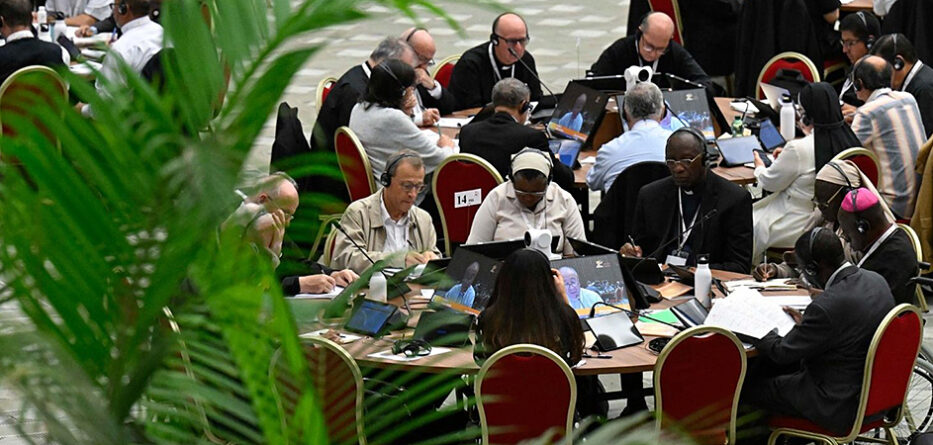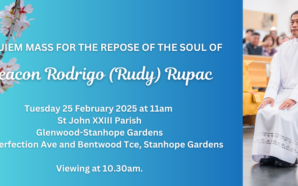Even the bishops had to stand in line and surrender their passports.
They lined up alongside theologians, laity and the media to procure the simultaneous translation headsets for the panel discussion on “The Role and Authority of the Bishop in a Synodal Church.” Much of the evening’s discussion focused on how to move away from a monarchical exercise of episcopal authority.
So of course the bishops were not exempt from the requirement that everyone leave a driver’s license or passport at the desk, to ensure that they return the headset!
Moderating the discussion on Oct. 9 was Durham University Professor Anna Rowlands, widely regarded for her theological acumen — and ability to herd cats, both of which are essential skills as she worked at the synod secretariat during this synodal process.
A professor of Catholic social thought at the U.K. university, Rowlands explained that most of the evening would be dedicated to unpacking No. 38 of the instrumentum laboris (working document), which focuses on seeing the role of bishop develop in terms of relationships.
The idea behind No. 38 of the instrumentum laboris is not just to update the church to a more democratic age. It is also to recenter the role of the bishop within the community, and to do so in a way that is not managerial but ecclesial.
To continue reading this article, click here.
With thanks to National Catholic Reporter (NCR) and Michael Sean Winters, where this article originally appeared.








